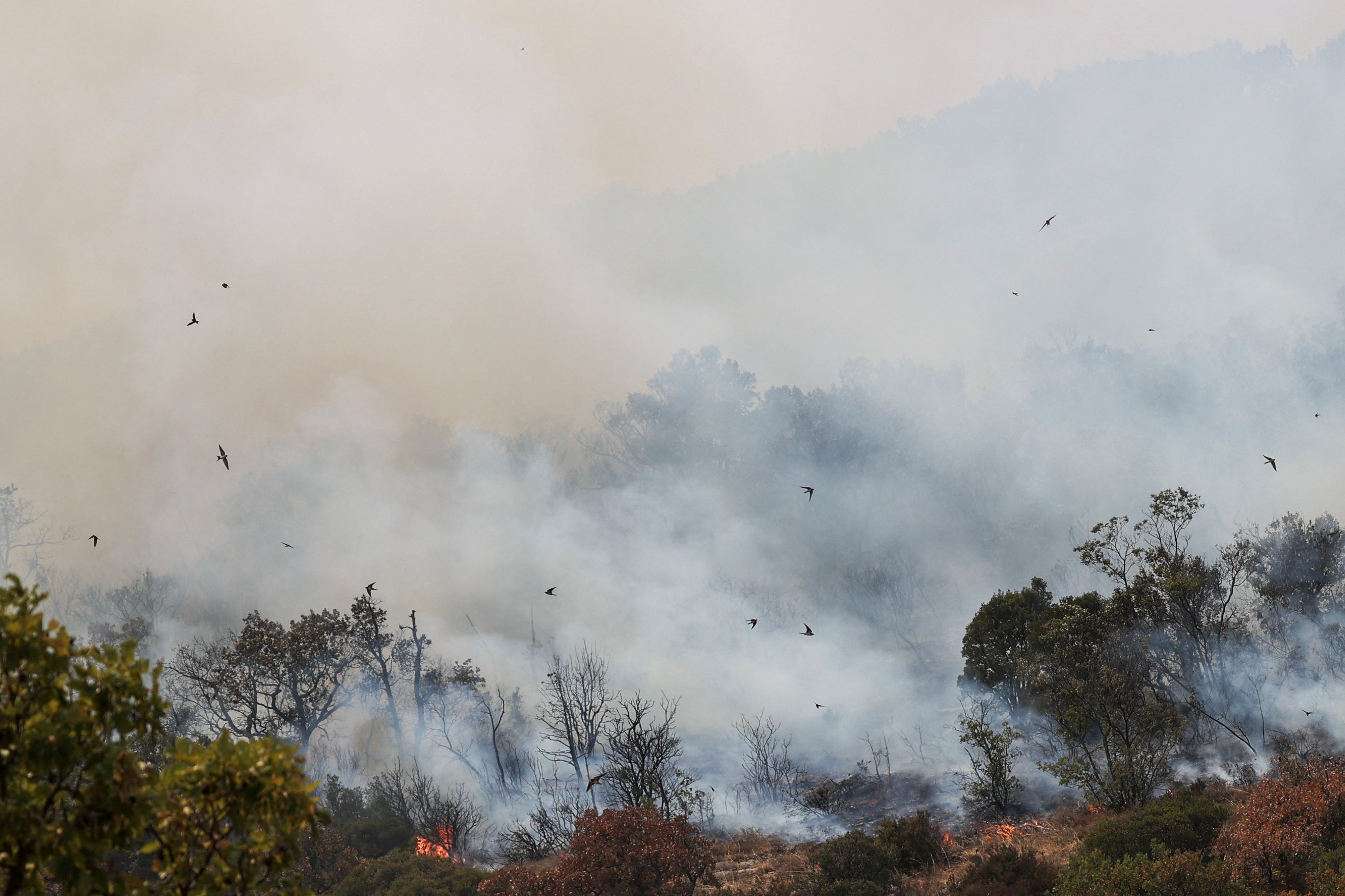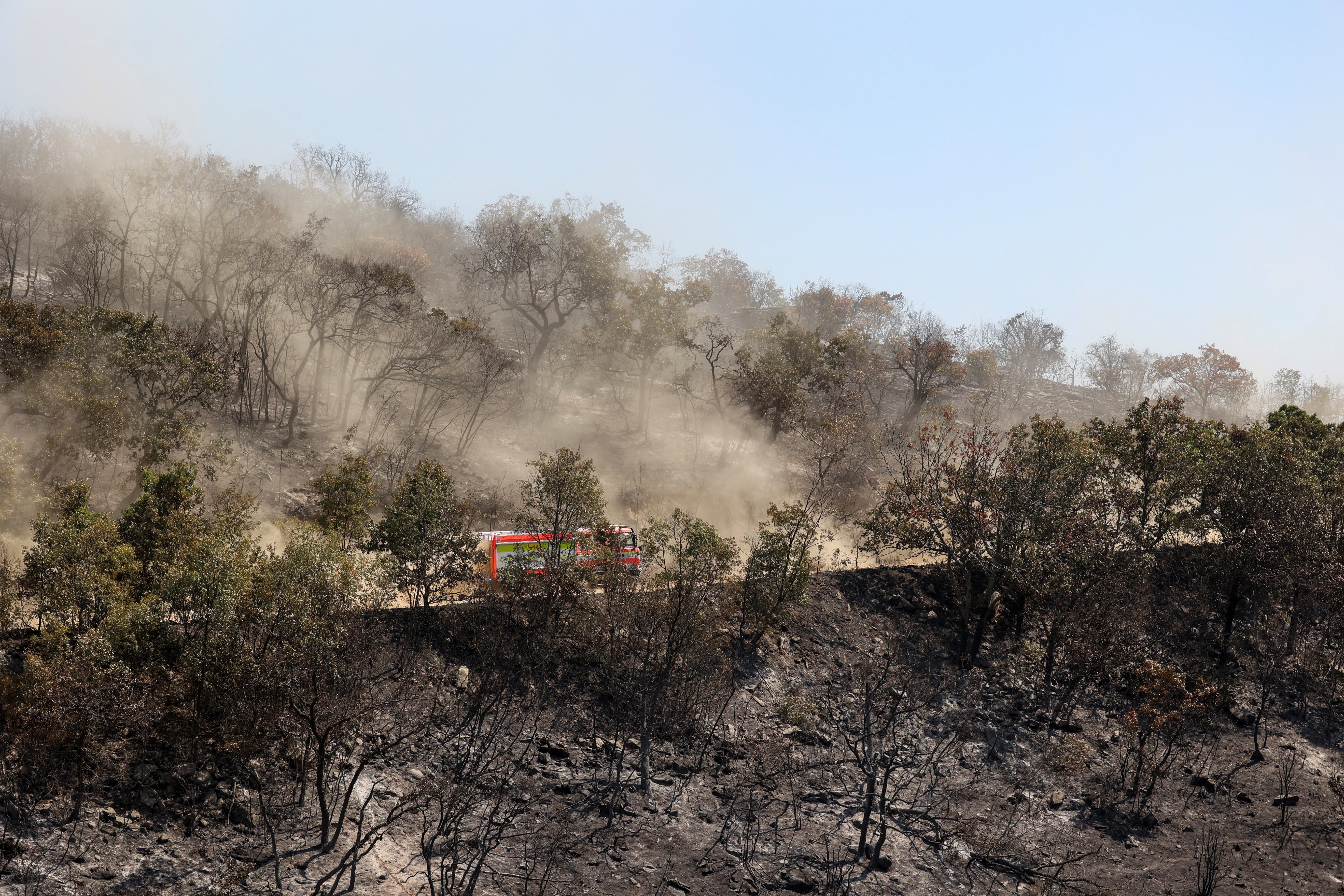Greece wildfire largest ever recorded in the EU and showing no sign of slowing down
Officials said wind could cause the flames to spread even further
Your support helps us to tell the story
From reproductive rights to climate change to Big Tech, The Independent is on the ground when the story is developing. Whether it's investigating the financials of Elon Musk's pro-Trump PAC or producing our latest documentary, 'The A Word', which shines a light on the American women fighting for reproductive rights, we know how important it is to parse out the facts from the messaging.
At such a critical moment in US history, we need reporters on the ground. Your donation allows us to keep sending journalists to speak to both sides of the story.
The Independent is trusted by Americans across the entire political spectrum. And unlike many other quality news outlets, we choose not to lock Americans out of our reporting and analysis with paywalls. We believe quality journalism should be available to everyone, paid for by those who can afford it.
Your support makes all the difference.A wildfire near the northeastern Greek region of Evros which has been raging for 11 days is unlikely to be brought under control, officials have said.
Deputy governor Dimitris Petrovich told national broadcaster ERT wind could cause the flames to spread even further.
“Unfortunately, we see that the Dadia front cannot be contained and brought under control,” he said, describing the conditions for firefighters as “difficult”.
The European Commission said the blaze, which is raging near the city of Alexandroupolis, is the largest single fire in the history of the EU.

Over 400 firefighters, six planes and four helicopters were working to put out the blaze in Evros, the fire department said.
Evacuation orders have been issued for a village in Evros and another village in neighbouring Rodopi.
The wildfire has been blamed for 20 of the 21 wildfire-related deaths in Greece last week. Authorities are investigating the cause of the fire, which has scorched more than 80,000 hectares (197,000 acres) of land, including in Dadia national park, according to the European Union’s Copernicus Emergency Management Service.
Major wildfires have also been seen on the outskirts of the capital Athens and on the Aegean island of Andros.
Some 260 firefighters, one plane and three helicopters tackled the blaze on the outskirts of Athens, which burned into the Mount Parnitha national park.
Meanwhile, a third fire broke out on Saturday on the island of Andros in the Cyclades archipelago, which is suspected to have been caused by a lightning strike.
Greece suffers major wildfires every year and imposes wildfire prevention regulations, typically from the start of May to the end of October, limiting activities such as the burning of dried vegetation and the use of outdoor barbecues.

By Friday, fire department officials had arrested 163 people on fire-related charges since the start of the fire prevention season, government spokesman Pavlos Marinakis said, including 118 for negligence and 24 for deliberate arson. The police had made a further 18 arrests, he said.
Last month, thousands of people were evacuated from towns and villages across Greece after wildfires ravaged the country.
Fires spread through Corfu, Rhodes, Evia, Crete and the northern Peloponnese region in Greece.
The most serious fire in the country was on the island of Rhodes, where some 19,000 people had been evacuated from several locations.
Local police said 16,000 people were evacuated by land and 3,000 by sea from 12 villages and several hotels.
The region’s deputy mayor said the fires in Corfu were caused by arson.



Join our commenting forum
Join thought-provoking conversations, follow other Independent readers and see their replies
5Comments